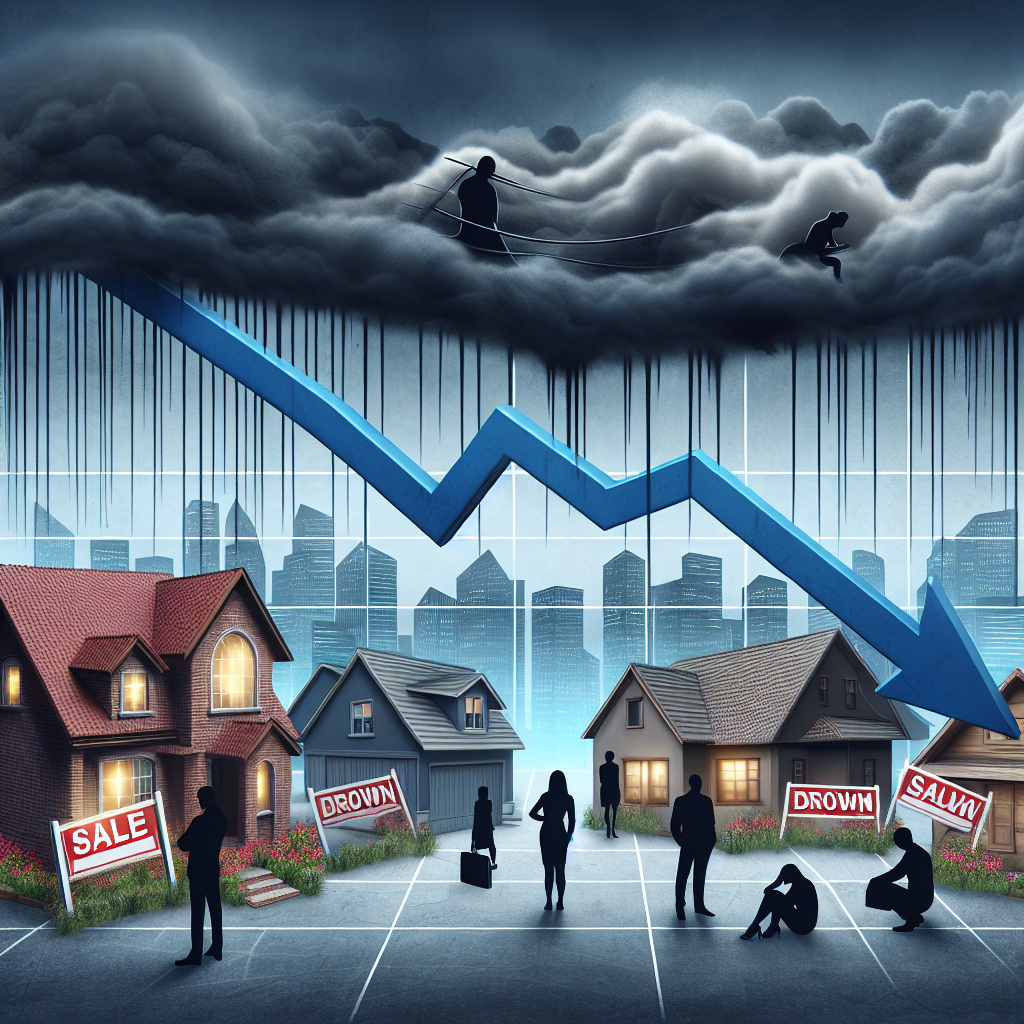A housing market crash is a significant economic event that can have widespread impacts on the economy, affecting consumers, businesses, and the overall financial stability of a country. When the housing market crashes, it can lead to a domino effect of negative consequences that ripple throughout the economy.
One of the main economic impacts of a housing market crash is the decline in housing prices. When the housing market crashes, the value of homes can plummet, leaving homeowners with properties that are worth less than what they owe on their mortgages. This can lead to a wave of foreclosures as homeowners struggle to make their mortgage payments or are unable to sell their homes for a price that covers their debts. The decline in housing prices can also have a negative impact on the construction industry, as developers may scale back or halt new projects in the face of falling demand.
Another economic impact of a housing market crash is the effect on consumer spending. Many homeowners use the equity in their homes as a source of wealth, taking out home equity loans or lines of credit to fund additional spending. When the value of their homes falls, homeowners may find themselves with less disposable income, leading to a decrease in consumer spending. This can have a detrimental effect on businesses that rely on consumer spending to stay afloat, leading to job losses and a slowdown in economic growth.
A housing market crash can also have a major impact on financial institutions. Banks and other lenders are heavily invested in the housing market, with mortgages making up a significant portion of their assets. When housing prices collapse and foreclosures increase, banks can suffer massive losses as homeowners default on their loans. This can lead to a credit crunch, as banks become more reluctant to lend to consumers and businesses, further exacerbating the economic downturn.
The overall financial stability of a country can also be at risk during a housing market crash. The collapse of the housing market can cause a decline in the value of mortgage-backed securities, which are investment vehicles that are backed by pools of mortgages. When the value of these securities falls, it can have a ripple effect throughout the financial system, leading to losses for investors and financial institutions. This can further destabilize the economy and lead to a crisis of confidence in the financial markets.
In summary, a housing market crash can have far-reaching economic impacts that can destabilize the economy and lead to a recession. From declining housing prices to a slowdown in consumer spending and a credit crunch, the effects of a housing market crash can be felt across all sectors of the economy. It is important for policymakers and regulators to monitor the housing market closely and take steps to prevent a crash from occurring, in order to protect the economic well-being of the country.
FAQs:
Q: Can a housing market crash lead to a recession?
A: Yes, a housing market crash can lead to a recession, as the ripple effects of declining housing prices can have a negative impact on consumer spending, business investment, and financial stability.
Q: How can policymakers prevent a housing market crash?
A: Policymakers can prevent a housing market crash by implementing regulations that promote responsible lending practices, monitoring the health of the housing market, and taking action to address any signs of a housing bubble.
Q: What are some warning signs of a housing market crash?
A: Some warning signs of a housing market crash include rapidly rising housing prices, an increase in mortgage defaults and foreclosures, and a slowdown in new housing construction.
Q: How long does it take for the housing market to recover from a crash?
A: The length of time it takes for the housing market to recover from a crash can vary depending on the severity of the crash and the overall health of the economy. In some cases, it can take several years for the housing market to fully recover.
